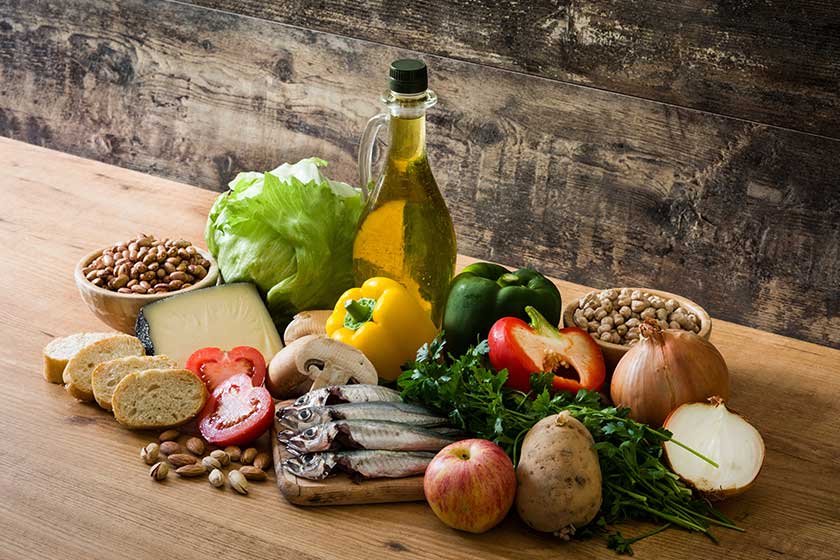The Mediterranean diet originated from people in Greece, Italy, Spain, and other nations bordering the Mediterranean Sea. This diet is predominantly plant-based, emphasizing the consumption of more whole grains, fruits, vegetables, nuts, herbs, beans, and other legumes, as well as healthy fats like avocados and olive oil in place of butter. Consumption of red meat is minimized, and smaller quantities of seafood, eggs, and dairy are used as sources of protein instead.
Numerous studies have found the Mediterranean diet to be beneficial for aging adults as it helps with a variety of illnesses and health issues. If you were looking for age-appropriate foods for your elderly loved ones, here are five key benefits of the Mediterranean diet for your aging parents!
Improves Cardiovascular Health
Different elements of the Mediterranean diet combine to help an aging person preserve a healthy and robust heart. Olive oil is a staple of the Mediterranean diet as it has beneficial omega-9 fatty acids and other healthy fats that lower harmful cholesterol levels. Plenteous vegetables and legumes are advantageous as well because they are high-fiber, which reduces blood pressure and maintains healthy cholesterol levels.
Studies show that the Mediterranean diet has a proven track record of lowering mortality rates and the risk of heart disease. According to a 2018 study in the American Medical Association Journal with over 26,000 participants, individuals who consistently adhered to a Mediterranean diet had a 25% lower chance of developing heart diseases!
Enhances Brain Health
Because the Mediterranean diet helps an aging person preserve a healthy heart, the brain is better able to filter out contaminants. A 2013 study published in the National Library of Medicine found that following a Mediterranean diet can reduce an elderly person’s risk of getting Alzheimer’s disease. The research also revealed that Alzheimer’s patients who followed the Mediterranean diet had a reduced speed of cognitive decline compared to others.
Prevents Unhealthy Weight Gain
Aging parents are more prone to weight gain due to their slower metabolisms and decreased mobility, and this might worsen pre-existing medical issues. Low-calorie vegetables and lean meats emphasized in the Mediterranean diet can help seniors shed extra weight. Moreover, the diet’s inclusion of healthy fats will curb the desire to binge. Elderly persons who require assistance cooking nutritional, low-fat meals should consider residing in an assisted living community in order to avoid unhealthy weight gain.
Decreases the Risk of Diabetes
The elderly are more vulnerable to Type II diabetes due to their body’s declining capability to metabolize sugar. This can damage their nerves, vision, and ability to recover. According to a 2014 study published in the Journal of Clinical and Experimental Metabolism involving over 135,000 participants, Mediterranean diets reduce the chance of acquiring diabetes by 23%! Even if your aging parent already has diabetes, Mediterranean foods are still great for alleviating the condition since it doesn’t cause upsurges in their blood sugar levels.
Reduces the Risk of Cancer
Due to its high antioxidant content, which shields the body from the damaging effects of free radicals, the Mediterranean diet has been found to help lower the risk of cancer. According to a 2017 report in the European Journal of Clinical Nutrition, Mediterranean diets reduce the risks of getting oesophageal, liver, and stomach cancer. Furthermore, the diet decreased the likelihood of cancer mortality by 6%.








